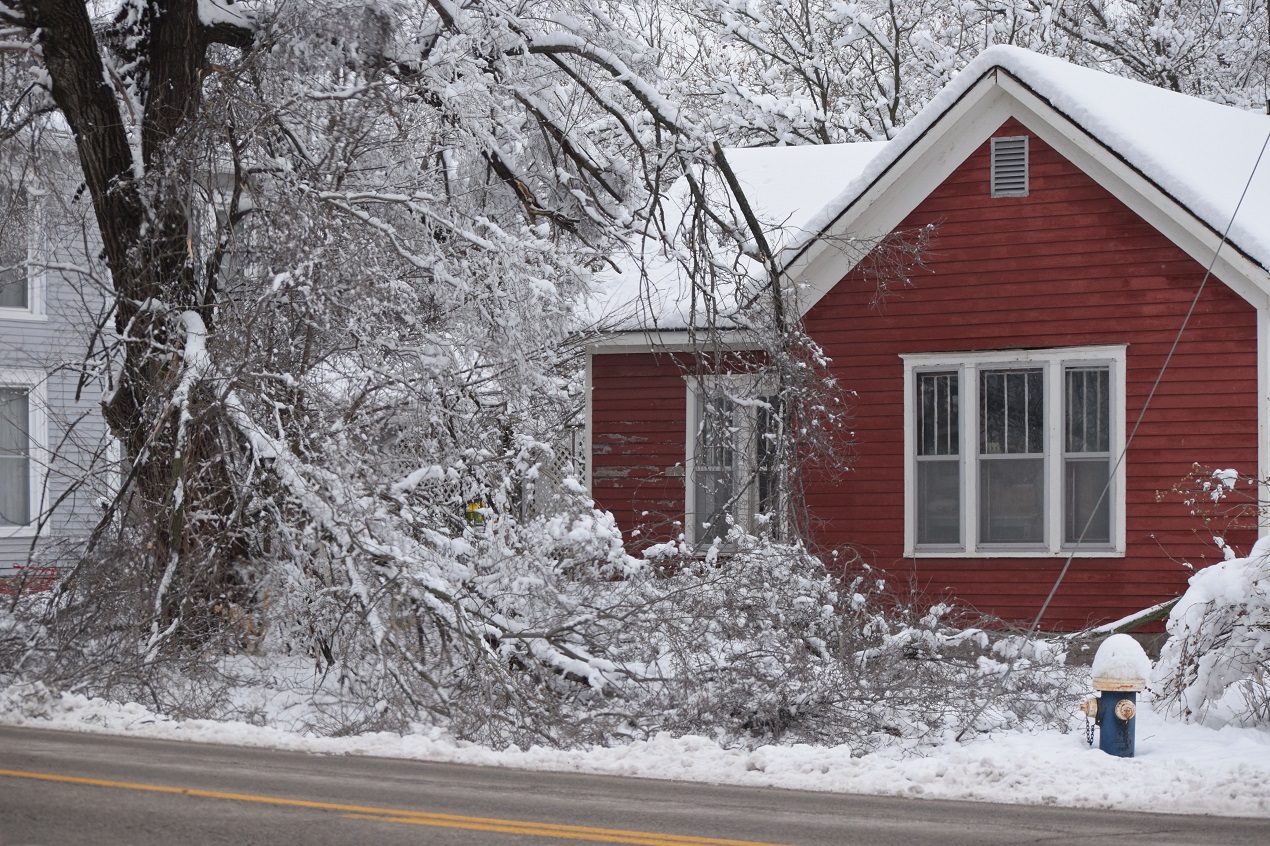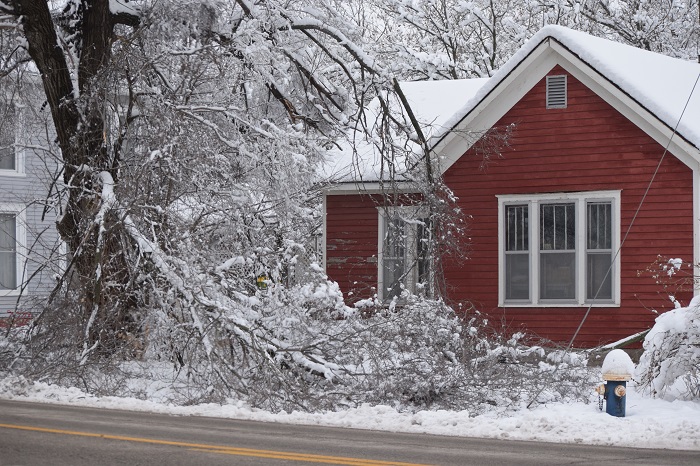
Tips to Prepare Your Home for Extreme Weather
From high winds and bone-chilling temperatures to freezing rain and heavy snowfalls, Canadian winters can be unforgiving. As we descend further into the cold season, homeowners face the challenge of protecting their homes from the realities of extreme weather to prevent costly damages and ensure their personal safety.
Let’s go over essential tips to help you prepare your home for extreme weather and discuss the vital role of having a good home insurance policy so you can weather any storm.
Insulate Your Home
One of the key elements in preparing your home for winter is ensuring proper insulation. In Canada, where temperatures can plummet well below freezing, a well-insulated home is crucial for retaining heat and reducing energy bills.
Check your doors, windows, and walls for any gaps or drafts, and invest in quality insulation materials like weather stripping or caulking to keep the cold out. It’s also wise to insulate your attic and basement to prevent the heat from escaping there as well.
Prepare Your Plumbing
Frozen pipes are a common winter woe that can lead to expensive repairs. You should insulate exposed pipes, especially in unheated areas like basements and crawl spaces. Consider using pipe insulation or heating tape to prevent freezing.
In extremely cold weather, let faucets drip to keep water flowing and reduce the risk of freezing. Additionally, if you plan on being away for an extended period during the winter, keep your thermostat set to a minimum temperature to prevent freezing.
Winter-Proof Your Roof
The weight of heavy snow accumulation can strain your roof’s structure. Ensure your roof is in good condition, with no missing shingles or leaks. Clear gutters of debris to prevent ice dams, and trim overhanging branches that could break under the weight of snow and cause damage.
Invest in a Reliable Heating System
Your heating system will be working overtime during the winter months. The Insurance Bureau of Canada emphasizes the importance of having your furnace, wood stove, and any other heating sources inspected, maintained, and serviced to ensure they are in good working condition. During the heating season, clean or replace furnace air filters each month. Consider upgrading to a more energy-efficient system to save on heating costs in the long run.
Stock Up on Emergency Supplies
Canadian winters can bring unexpected power outages, so it’s wise to be prepared. Stock up on essential supplies such as bottled water, non-perishable food items, candles, blankets, and a first aid kit. Keep a backup power source like a generator for emergencies.
Trim Trees and Branches
Heavy snow and ice can weigh down tree branches, leading to breakage and potential damage to your property. Trim back overhanging branches to reduce the risk of falling onto your roof or power lines during a winter storm.
The Importance of Winter-Ready Home Insurance
Unfortunately, accidents and unforeseen events can still occur, no matter how well-prepared you are. This is where home insurance becomes a crucial shield for homeowners. Review your policy to ensure it covers potential winter-related damages such as burst pipes, roof collapses, and other weather-related incidents. If necessary, consider upgrading your coverage to provide comprehensive protection.
Protection Against Weather-Related Damages:
A comprehensive home insurance policy protects against some weather-related damages, ensuring that the financial burden of repairs doesn’t fall solely on the homeowner. Home insurance doesn’t just cover the structure of your home but also extends protection to your personal belongings. If certain winter-related disasters damage your possessions, home insurance can help replace or repair items, offering peace of mind during the winter season.
Liability Protection:
Winter conditions can increase the risk of accidents on your property. If a visitor slips on an icy sidewalk or if falling snow damages a neighbour’s property, liability coverage in your home insurance policy can provide protection. This coverage is crucial for covering medical expenses or legal fees that may arise from such incidents.
Temporary Living Expenses:
In the unfortunate event that your home becomes uninhabitable due to winter-related damage, home insurance can cover temporary living expenses. This ensures that you and your family have a place to stay while repairs are being made.
Customized Coverage:
Not all insurance policies are created equal. Work with an insurance broker to customize your coverage based on the specific risks associated with your location and your home’s unique features. This may include additional coverage for winter-specific risks, giving you a tailored and robust insurance plan.
Winterizing your home is a proactive and necessary step to prepare for the season’s challenges. However, even with the best preparations, unforeseen events can occur, so the importance of a winter-ready home insurance policy becomes evident. By combining a well-prepared home with comprehensive insurance coverage, you can face the winter months with confidence, knowing that your home and your investment are protected against the unpredictable nature of the season.
Visit the Insurance Bureau of Canada’s Winter Seasonal Safety page to learn more about winterizing your home and protecting your property.
Have additional questions or need a home insurance quote? Contact us today at 1-800-268-3311 or ebrokers@dbibrokers.ca. You can also visit our Home Insurance page for details.

